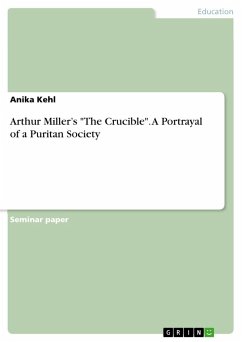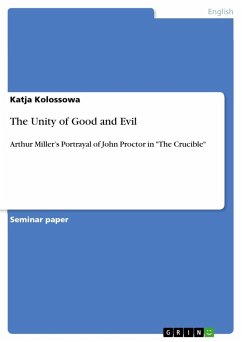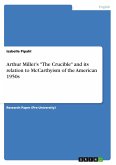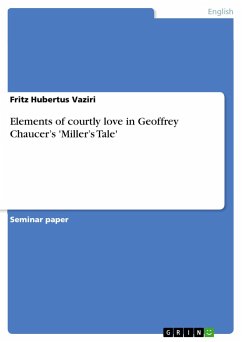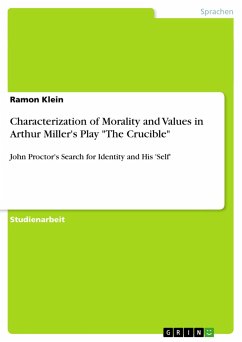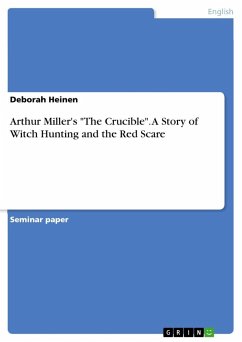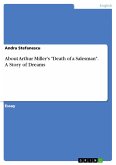Seminar paper from the year 2010 in the subject Didactics for the subject English - Literature, Works, grade: 1,7, Ernst Moritz Arndt University of Greifswald (Anglistik/Amerikanistik), course: Proseminar: Lost in Literature, language: English, abstract: What happened in Salem, in 1692, is today described as one of the darkest episodes in American history. Still today, historians try to find out what caused the disastrous outbreak of the witch craze but the only thing they can be sure about is that they can not explain why so many people had to die. "Accusations of witchcraft were not unusual in the seventeenth-century world [...]" What was so special about the time and place that such an outbreak of random accusations became possible? "[...] "Salem" has become an icon in American culture. The trials have become a metaphor for hysterical prosecution, unfounded accusations, and confessions that have no reasonable explanation." Believe in witchcraft had existed for hundreds of years before the hysteria broke out in Salem. The colonists who came to Massachusetts had a strong belief in the devil and his agents and were mainly Puritans, who came to America to gain religious freedom. There are many things you could compare between the historical account of the witch hunt and Arthur Miller's play The Crucible. This paper is going to analyse the portrayal of a Puritan society in Miller's play and will try to find out whether the religion of the people and therewith their way of life have caused the rising of the witch scare and the horrible outcome for the characters in the play. It is going to be analysed why normal people start accusing their neighbours and friends for witchcraft although many of them are aware of the consequences for the accused. At first it is going to be described how Arthur Miller informed himself about the happenings of 1692 in order to underline his credibility of being able to create the Puritan society of that time. In the following the terms 'Puritanism' and 'Puritan' will be briefly defined. The main part of the paper will concentrate on the analysis of Puritan traits, beliefs, and lifestyles in The Crucible in order to find out whether they might have played a part in the catastrophe.
Hinweis: Dieser Artikel kann nur an eine deutsche Lieferadresse ausgeliefert werden.
Hinweis: Dieser Artikel kann nur an eine deutsche Lieferadresse ausgeliefert werden.

